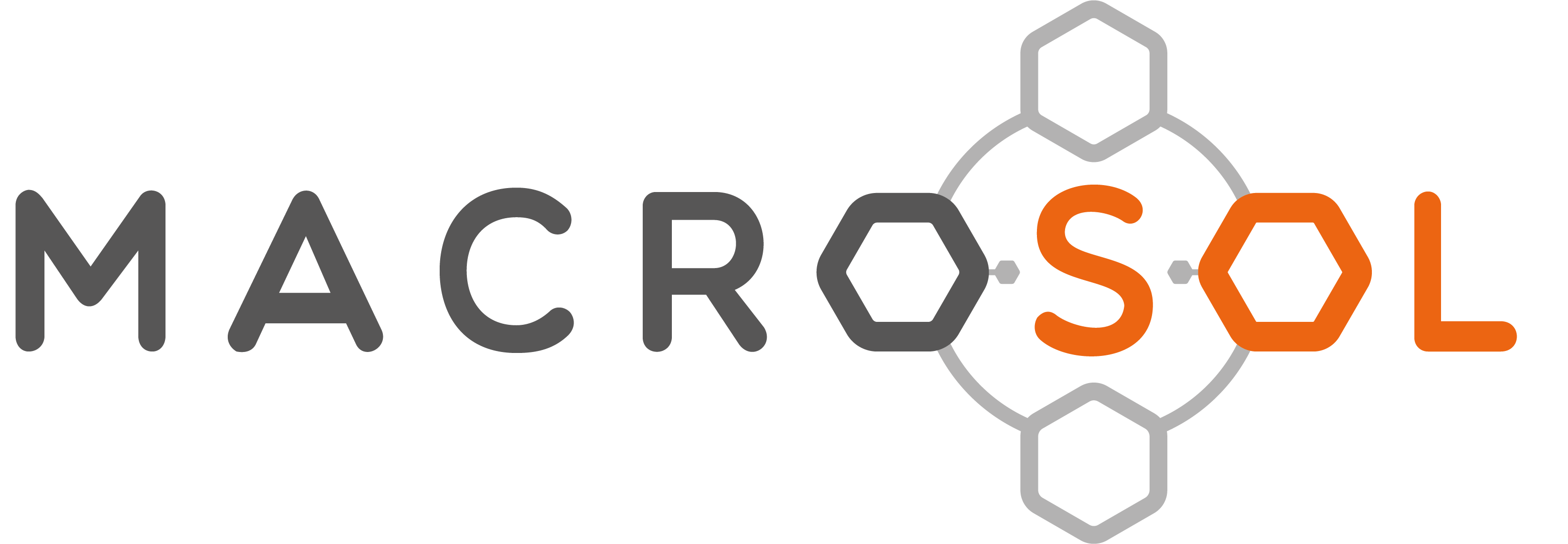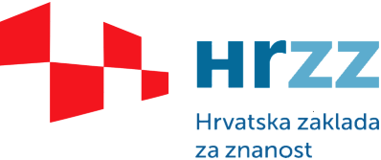IP-2019-04-9560

Trajanje:
1. 2. 2020. – 31. 1. 2024.
Financiranje / Funding
HRVATSKA ZAKLADA ZA ZNANOST / CROATIAN SCIENCE FOUNDATION

VODITELJ PROJEKTA / PRINCIPAL INVESTIGATOR: prof. dr. sc. Vladislav Tomišić
INSTITUCIJE KOJE SUDJELUJU U PROJEKTU / INSTITUTIONS
Prirodoslovno-matematički fakultet, Sveučilište u Zagrebu
Kemijsko-tehnološki fakultet, Sveučiliste u Splitu
Prehrambeno-biotehnološki fakultet, Sveučilište u Zagrebu
Kemijski odsjek, Sveučilište u Milanu
Faculty of Science, University of Zagreb
Faculty of Food Technology and Biotechnology, University of Zagreb
Faculty of Chemistry and Technology, University of Split
Department of Chemistry, University of Milan
NAZIV PROJEKTA / PROJECT TITLE
Koordinacijske reakcije makrocikličkih liganada u otopini
Coordination Reactions of Macrocyclic Ligands in Solution
SAŽETAK / ABSTRACT
Od samih početaka supramolekulske kemije, istraživanja makrocikličkih spojeva od posebne su važnosti za njezin razvoj. Naime, takvi spojevi često tvore izrazito stabilne komplekse te su ponekad izrazito selektivni prema određenoj kemijskoj vrsti, što je posljedica njihovog dobro definiranog i relativno rigidnog veznog mjesta. Projekt MacroSol fokusirat će se na dizajn i pripravu različitih makrocikličkih liganada (kaliksarena, kukurbiturila, ciklodekstrina i ciklopeptida) i opširno fizikalno-kemijsko istraživanje njihovog potencijala kao receptora kationa, aniona i neutralnih vrsta. Pri tome će naglasak biti stavljen na fluorescentne receptore te one topljive u vodi, kao i na proučavanje reakcija kompleksiranja koje su posljedica solvofobnih interakcija. Termodinamika koordinacijskih reakcija istražit će se brojnim eksperimentalnim metodama, kao što su mikrokalorimetrija, spektrofotometrija, spektroskopija NMR, spektrofluorimetrija, potenciometrija i konduktometrija. Važan cilj projekta jest razumijevanje utjecaja solvatacije na promatrane ravnoteže, zbog čega će se reakcije kompleksiranja proučavati u više različitih otapala. Taj će se aspekt dodatno istražiti određivanjem termodinamičkih funkcija otapanja istraživanih liganada i kompleksa te njihovog transfera iz jednog otapala u drugo. Uvid u strukturne karakteristike liganada i kompleksa dobit će se na temelju rezultata eksperimenata NMR, a odredit će se i odgovarajuće kristalne strukture pomoću rentgenske difrakcije na jediničnim kristalima. Metode računalne kemije (DFT, MD) upotrijebit će se da bi se istražile strukture receptora i konformacijske promjene do kojih dolazi uslijed kompleksiranja iona i stvaranja inkluzijskih kompleksa. Te će tehnike također pripomoći interpretaciji eksperimentalnih rezultata. Očekuje se da će saznanja proizašla iz istraživanja predloženih u okviru projekta pružiti detaljan uvid u povezanost receptorskih svojstava i strukturnih karakteristika makrocikala, što će omogućiti daljnji razvoj spojeva koji mogu učinkovito i selektivno vezati ione i neutralne vrste.
Since the beginning of the research in the field of supramolecular chemistry, macrocycles have received great attention and played a key role in its development. That has been due to their capacity to form well-defined binding sites, from which the high affinity towards particular chemical species and the corresponding peak selectivity originate. The MacroSol project will focus on the design and preparation of diverse macrocyclic hosts (calixarenes, cucurbiturils, cyclodextrins, and cyclopeptides) and comprehensive physicochemical studies of their potential as coordinating agents for different charged and neutral species. Particular emphasis will be placed on fluorescent receptors, as well as water-soluble ones, and on the solvophobically driven complexation reactions. Thermodynamics of coordination reactions will be studied by a number of experimental techniques, namely ITC, UV-Vis and NMR spectroscopies, spectrofluorimetry, potentiometry, and conductometry. An important aim of the project, i.e. the understanding of the solvent effects on the studied processes, will be achieved by investigating the thermodynamics of complexation reactions in different media. This subject will be additionally explored by the determination of solution and transfer thermodynamic functions of the receptors and their complexes. An insight into the structural characteristics of the ligands and complexes will be gained by means of NMR spectroscopy and crystal structure determination by X-ray diffraction. Molecular dynamics simulations and DFT calculations will also be used to explore structures of the studied compounds and conformational changes taking place upon ion binding and formation of inclusion complexes. The computational techniques will also aid the interpretation of the results obtained experimentally. It is expected that the information gathered in the course of a project implementation will significantly contribute to a better understanding of the structure-reactivity relationships, which could be of great importance in targeted design of the compounds capable of efficient and selective binding of ions and neutral species.
PROJEKTNI TIM / PROJECT TEAM
PMF, Sveučilište u Zagrebu / Faculty of Science, University of Zagreb: Branimir Bertoša, Nikola Bregović, Nikola Cindro, Gordan Horvat, Katarina Leko, Katarina Pičuljan, Josip Požar, Vladislav Tomišić, Andrea Usenik
PBF, Sveučilište u Zagrebu / Faculty of Food Technology and Biotechnology, University of Zagreb: Marina Tranfić Bakić
KTF, Sveučiliste u Splitu / Faculty of Chemistry and Technology, University of Split: Renato Tomaš
Odjel za kemiju, Sveučilište u Milanu / Department of Chemistry, University of Milan: Giovanna Speranza, Nikolina Vidović
PUBLIKACIJE / PUBLICATIONS
1. K. Leko, M. Hanževački, Z. Brkljača, K. Pičuljan, R. Rosana, J. Požar, Solvophobically Driven Complexation of Adamantyl Mannoside with β‐Cyclodextrin in Water and Structured Organic Solvents // Chemistry : a European journal 26 (2020), 23; 5208−5219.
(rad je istaknut na naslovnici časopisa)
2. N. Vidović, G. Horvat, D. Riva, T. Rinkovec, N. Cindro, V. Tomišić, G. Speranza, Chloride-Assisted Peptide Macrocyclization // Organic Letters 22 (2020), 6; 2129−2134.
